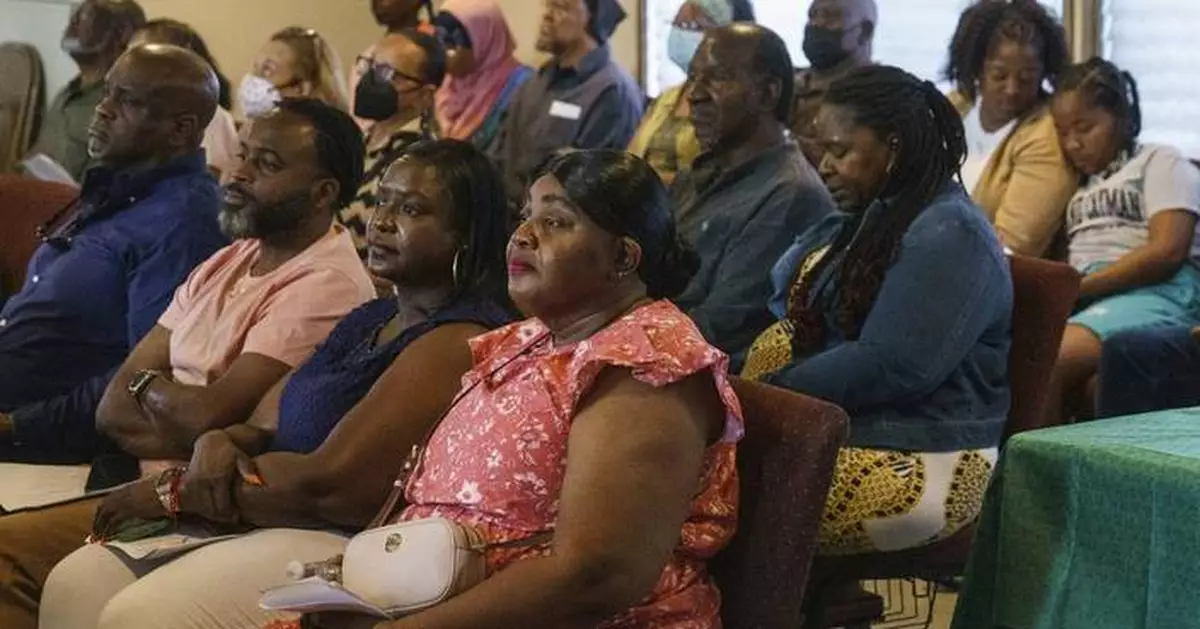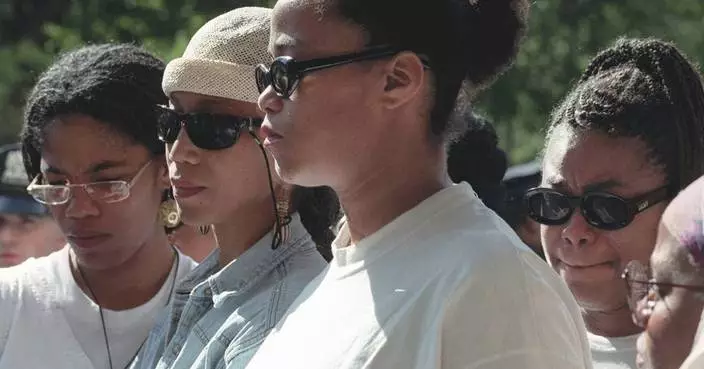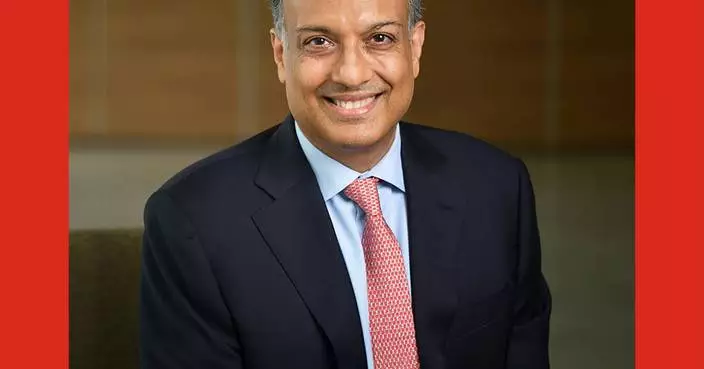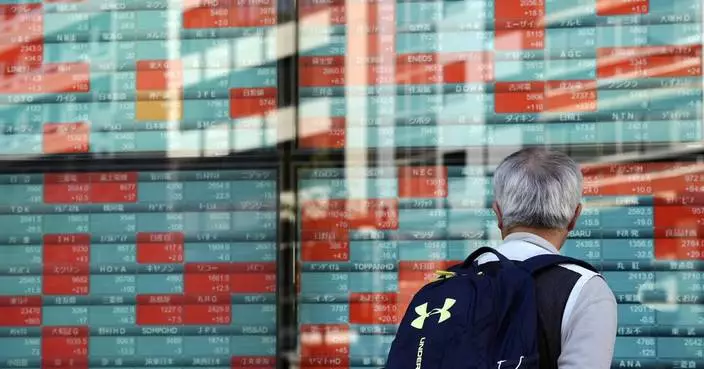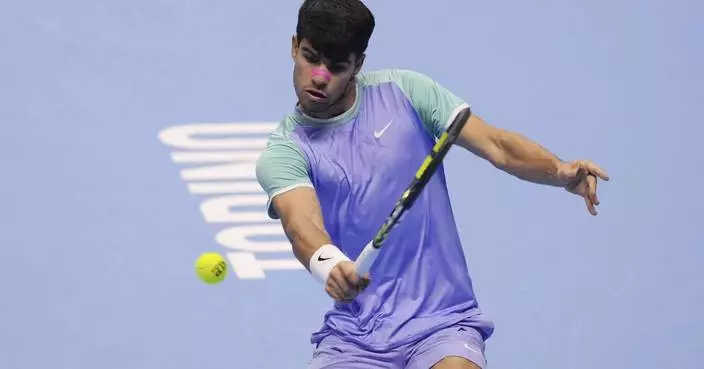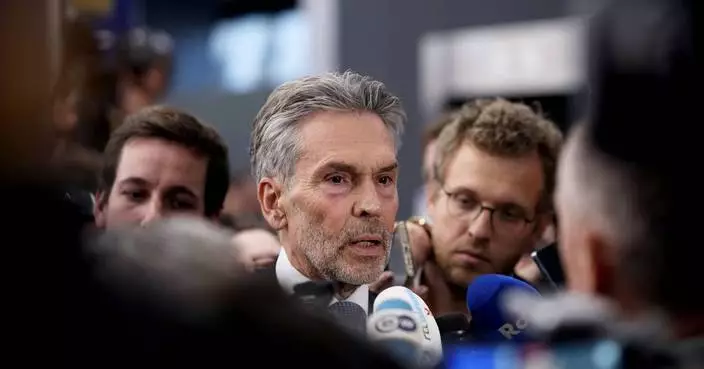PALM SPRINGS, Calif. (AP) — A Southern California city will pay $5.9 million to compensate Black and Latino families who were displaced from a neighborhood in the 1960s and decades later led a fight for restitution.
The Palm Springs City Council approved the deal in a unanimous vote Thursday. The council also approved $10 million for a first-time homebuyer assistance program, $10 million for a community land trust and the creation of a monument commemorating the history of the neighborhood known as Section 14.
Mayor Jeffrey Bernstein earlier this week said the city is “taking bold and important action that will create lasting benefits for our entire community while providing programs that prioritize support for the former residents of Section 14.”
It has not been determined how much each family or individual would receive in direct compensation, attorney Areva Martin said earlier this week. Martin represents over 300 former residents and hundreds of descendants. Money for housing assistance would go toward low-income Palm Springs residents, with priority given to former Section 14 residents and descendants.
Section 14 was a square-mile neighborhood on a Native American reservation that many Black and Mexican American families once called home. Families recalled houses being burned and torn down in the area before residents were told to vacate their homes.
The city council voted in 2021 to formally apologize for the city's role in the displacement. Families filed a tort claim with the city in 2022, and the following year announced they were seeking $2.3 billion for the harm caused by their displacement.
The tort claim argued the tragedy was akin to the violence that decimated a vibrant community known as Black Wall Street more than a century ago in Tulsa, Oklahoma, leaving as many as 300 people dead. There were no reported deaths in connection with the displacement of families from Section 14.
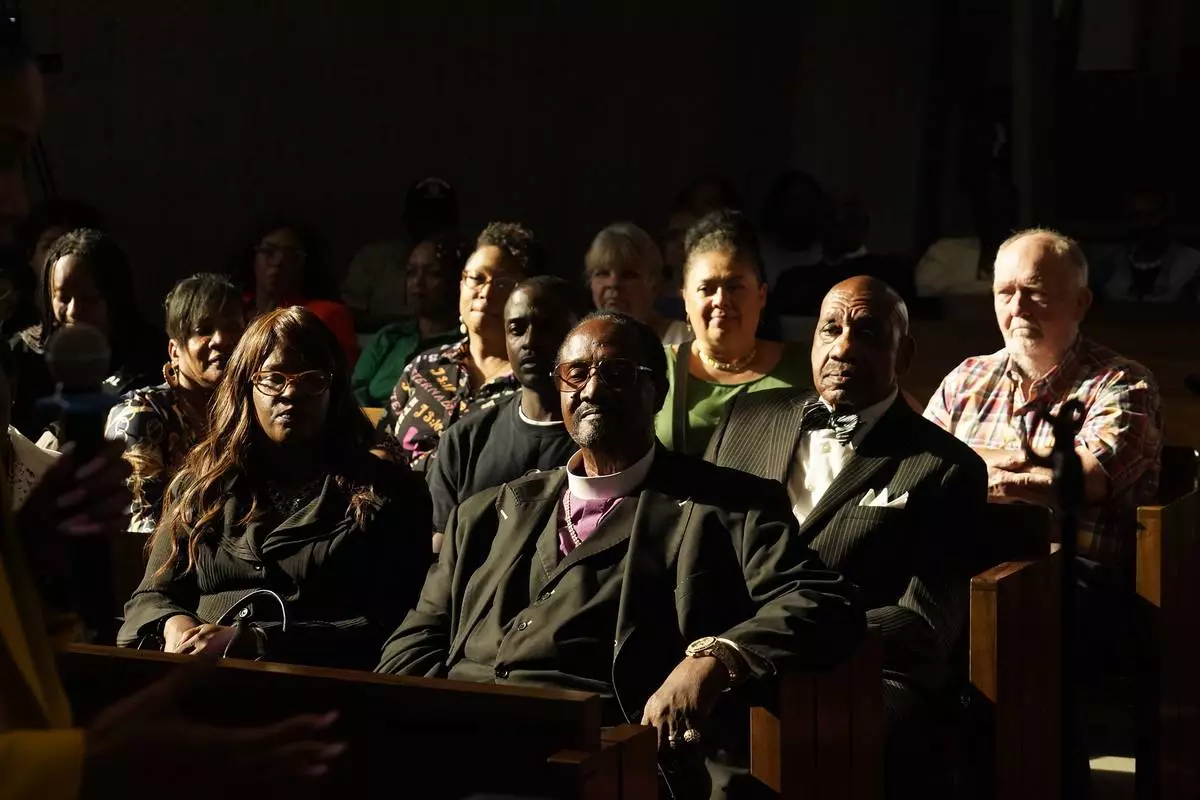
FILE - Palm Springs Section 14 neighborhood residents and descendants listen to Areva Martin, civil rights attorney, at the United Methodist Church in Palm Springs, Calif., Sunday, April 16, 2023. (AP Photo/Damian Dovarganes, File)
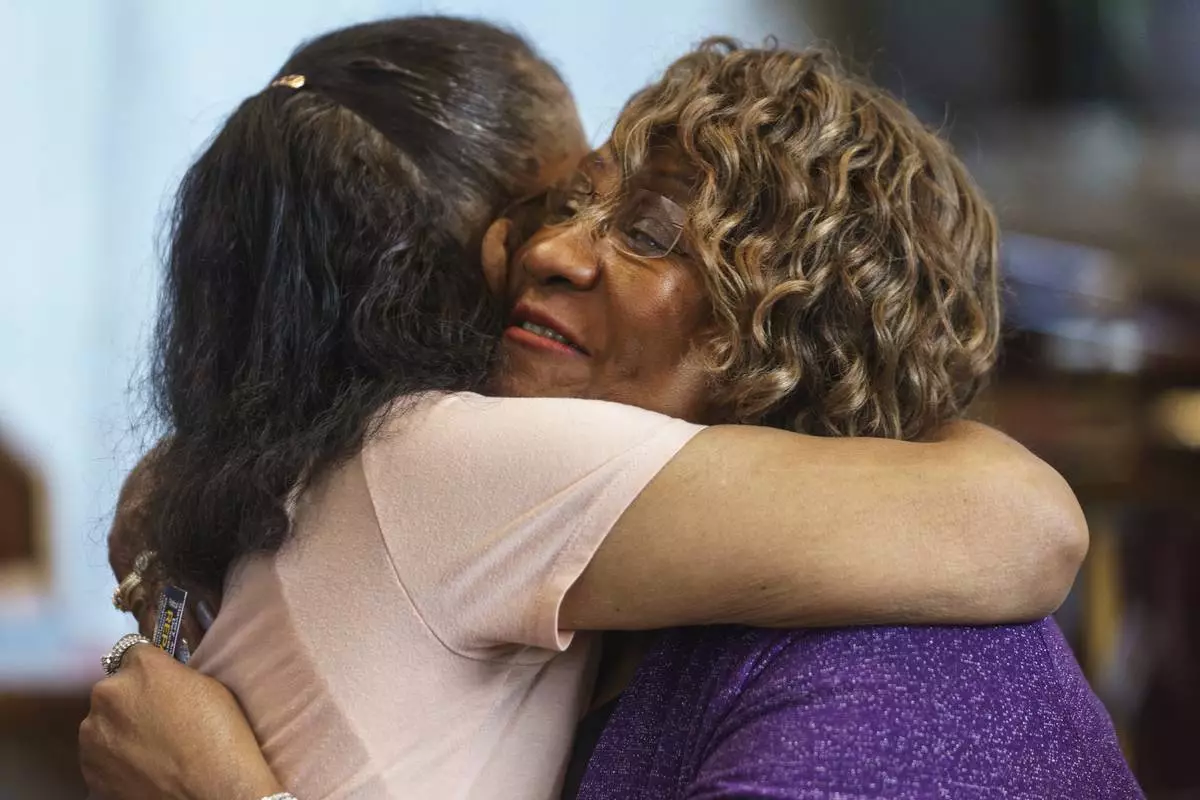
FILE - Pearl Taylor Devers the chairperson for the Palm Springs Section 14 Survivors group, right, is hugged by another member at the United Methodist Church in Palm Springs, Calif., Sunday, April 16, 2023. (AP Photo/Damian Dovarganes, File)
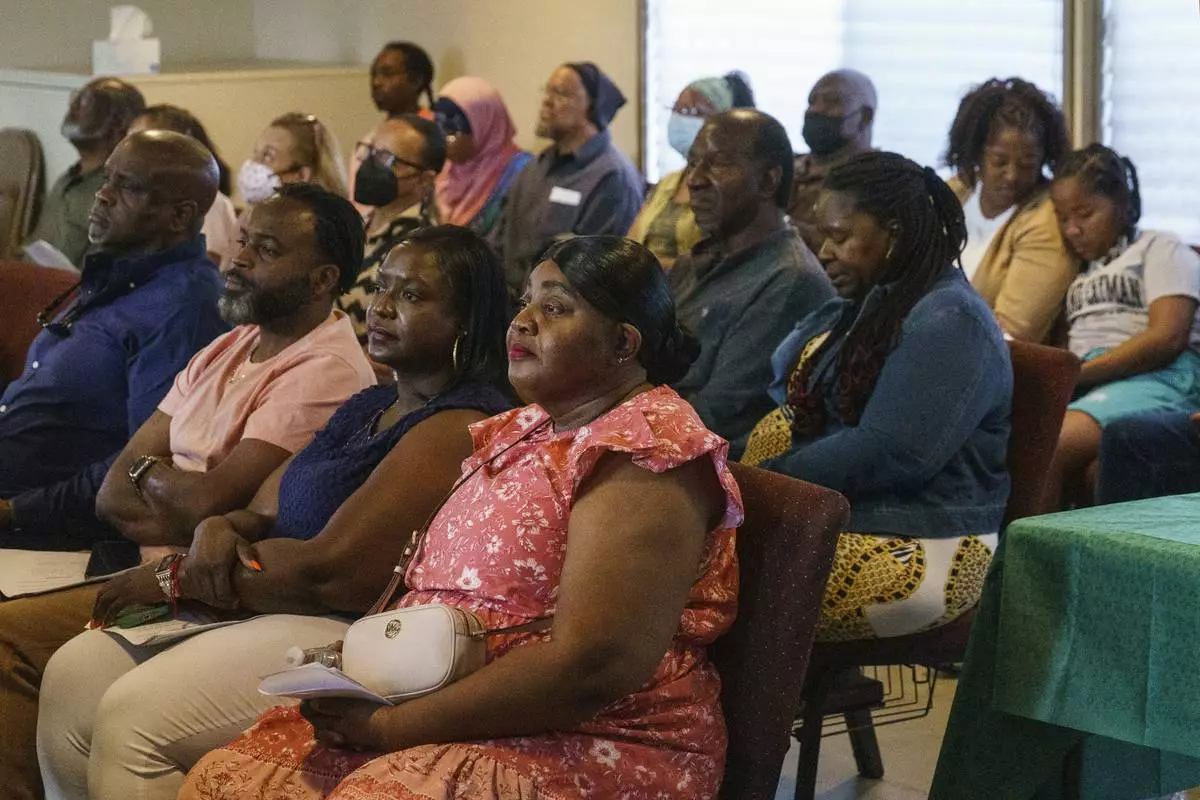
FILE - Descendants of Palm Springs Section 14 residents, front row from left, Durran Jamison, Jarvis Crawford, Janell Hunt, and Taunya Harvey gather at the United Methodist Church in Palm Springs, Calif., Sunday, April 16, 2023. (AP Photo/Damian Dovarganes, File)
BEIRUT (AP) — Lebanon’s caretaker prime minister on Friday asked Iran to help secure a cease-fire in the war between Israel and Hezbollah and appeared to urge it to convince the militant group to agree to a deal that could require it to pull back from the Israel-Lebanon border.
As a top adviser to Iran's supreme leader Ali Khamenei visited Lebanon for talks, Lebanese officials said an American proposal for a cease-fire deal had been passed on to Hezbollah, aiming to end 13 months of exchanges of fire between Israel and the group.
Iran is a main backer of Hezbollah and for decades has been funding and arming the Lebanese militant group. Hezbollah began firing rockets into northern Israel the day after Hamas’ surprise attack into Israel on Oct. 7, 2023 ignited the war in Gaza – prompting exchanges between the two sides ever since.
Since late September, Israel dramatically escalated its bombardment of Lebanon, vowing to cripple Hezbollah and end its barrages in Israel. More than 3,300 people have been killed in Lebanon by Israeli fire – 80% of them in the past month -- Lebanon’s Health Ministry says.
According to Lebanese media, U.S. Ambassador Lisa Johnson handed over a draft of a proposed cease-fire deal to Lebanese Parliament Speaker Nabih Berri, who has been leading the talks representing Hezbollah.
A Lebanese official confirmed that Beirut has received a copy of a draft proposal based on U.N. Security Council resolution 1701, which ended the last Israel-Hezbollah war, in the summer of 2006. A Lebanese politician said Hezbollah officials had received the draft, were studying it and would express their opinion on it to Berri. The politician, who knows the work of Hezbollah, and the official spoke on condition of anonymity because he was not authorized to speak to the media about the ongoing talks.
U.N. resolution 1701, among other things, holds that only the Lebanese army and U.N. peacekeepers should operate in southern Lebanon, meaning Hezbollah would have to end its presence there. That provision was never implemented. Lebanon accuses Israel of also violating the resolution by maintaining hold of a small, disputed border area and conducting frequent military overflights over Lebanon.
The Lebanese official did not give details other than to say Israel was insisting that some guarantees be included. The U.S. Embassy refused to either confirm or deny the reports.
In talks with Khamenei's adviser, Ali Larijani, Lebanon's caretaker prime minister, Najib Mikati, urged Iran to help implement resolution 1701. He said the Lebanese government wants the war to end and the resolution to be implemented “in all its details,” according to a statement on the talks issued by his office.
Mikati, who in recent weeks has become more critical of Iran’s role in Lebanon, also said the government wants Iran to help Lebanon’s national unity and not take any stance backing one party against another.
Iran’s backing for Hezbollah has helped the group, which is the most powerful faction among Lebanon’s Shiite Muslims, dominate the country’s politics the last decade.
After meeting Mikati and Berri, Larijani said his visit’s main aim was “to loudly say that we will stand by Lebanon’s government and people.”
Asked if he was trying to thwart U.S. cease-fire mediation, Larijani said, “We are not trying to blow up any effort, but we want to solve the problem and we will stand by Lebanon, whatever the circumstances.”
Israeli forces carried out new strikes around the Lebanese capital on Friday. Three waves of air raids hit buildings in Beirut’s southern suburbs, setting off explosions in the area known as Dahiyeh.
In an earlier strike on the southeastern edge of Beirut, images taken by an Associated Press photographer captured a rocket about to strike an 11-story residential building in the Tayouneh neighborhood – then showed a blast of flame erupting from the side of the building. Much of a lower level of the building was smashed to rubble.
There were no immediate reports of casualties in any of the strikes. In each case, the Israeli military had issued a warning before the attack, saying it was targeting Hezbollah facilities.
Near the eastern Lebanese city of Baalbek, rescue teams continued searching through the rubble Friday at the site of an Israeli strike the night before that hit a civil defense center in the town of Douris.
So far, the bodies of 14 employees and volunteers with the Lebanese Civil Defense had been recovered, the agency said, as well as some other remains that will require DNA testing.
Israel expanded its operations in Lebanon even as it continues its campaign in the Gaza Strip, vowing to destroy Hamas, which is also backed by Iran.
Funerals were held Friday for 11 Palestinians killed Thursday in a series of Israeli airstrikes in and around the central Gaza Strip city of Deir al-Balah. Two children were among the dead, seen with the other dead by an AP reporter.
On Thursday, the U.N. Security Council’s 10 elected members circulated a draft resolution demanding “an immediate, unconditional and permanent cease-fire” in Gaza. The U.S., Israel’s closest ally, holds the key to whether the U.N. Security Council adopts the resolution. The four other permanent members — Russia, China, Britain and France — are expected to support it or abstain.
The Israel-Hamas war began after Palestinian militants stormed into Israel on Oct. 7, 2023, killing about 1,200 people — mostly civilians — and abducting 250 others.
Israel’s bombardment and ground offensives since then have killed more than 43,000 people in Gaza, Palestinian health officials say. The officials don’t distinguish between civilians and combatants but say more than half of those killed have been women and children.
Rising reported from Bangkok. Abby Sewell in Beirut, and Edith M. Lederer at the United Nations, contributed to this report.
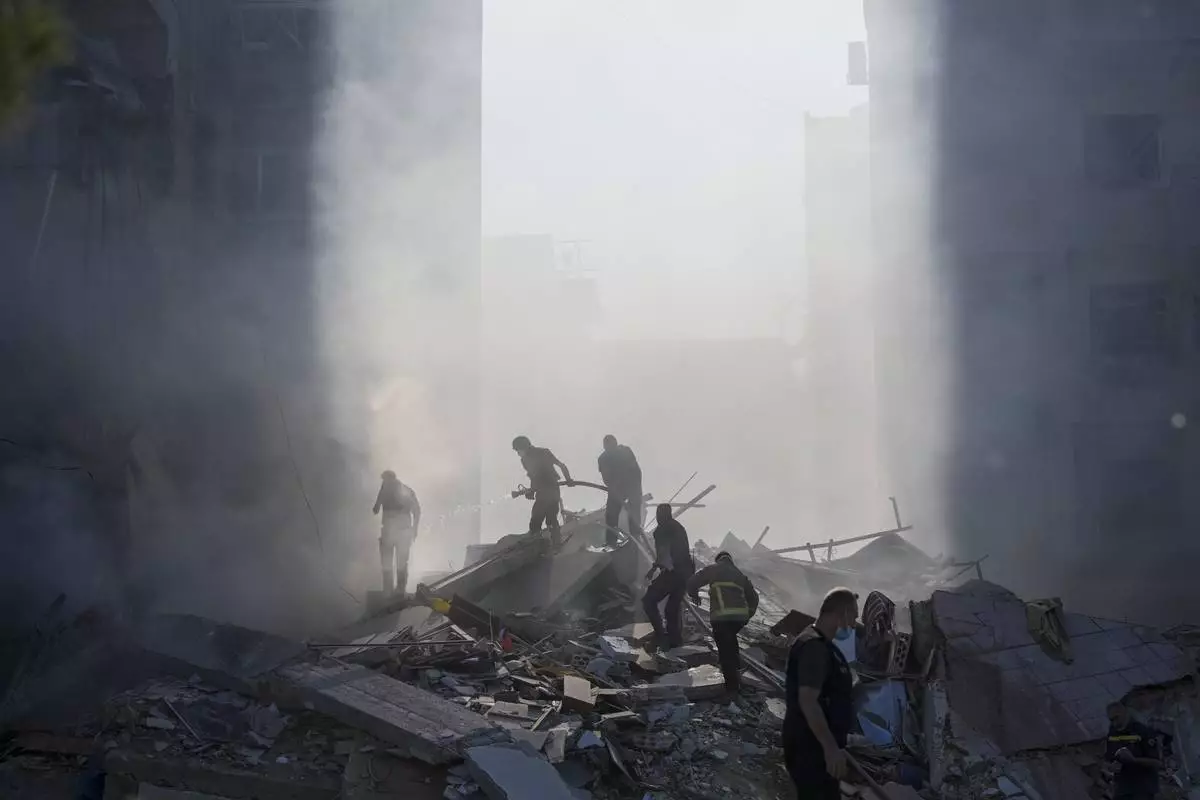
Civil defense workers extinguish a fire as smoke rises from the site of an Israeli airstrike in Tayouneh, Beirut, Lebanon, Friday, Nov. 15, 2024. (AP Photo/Hassan Ammar)
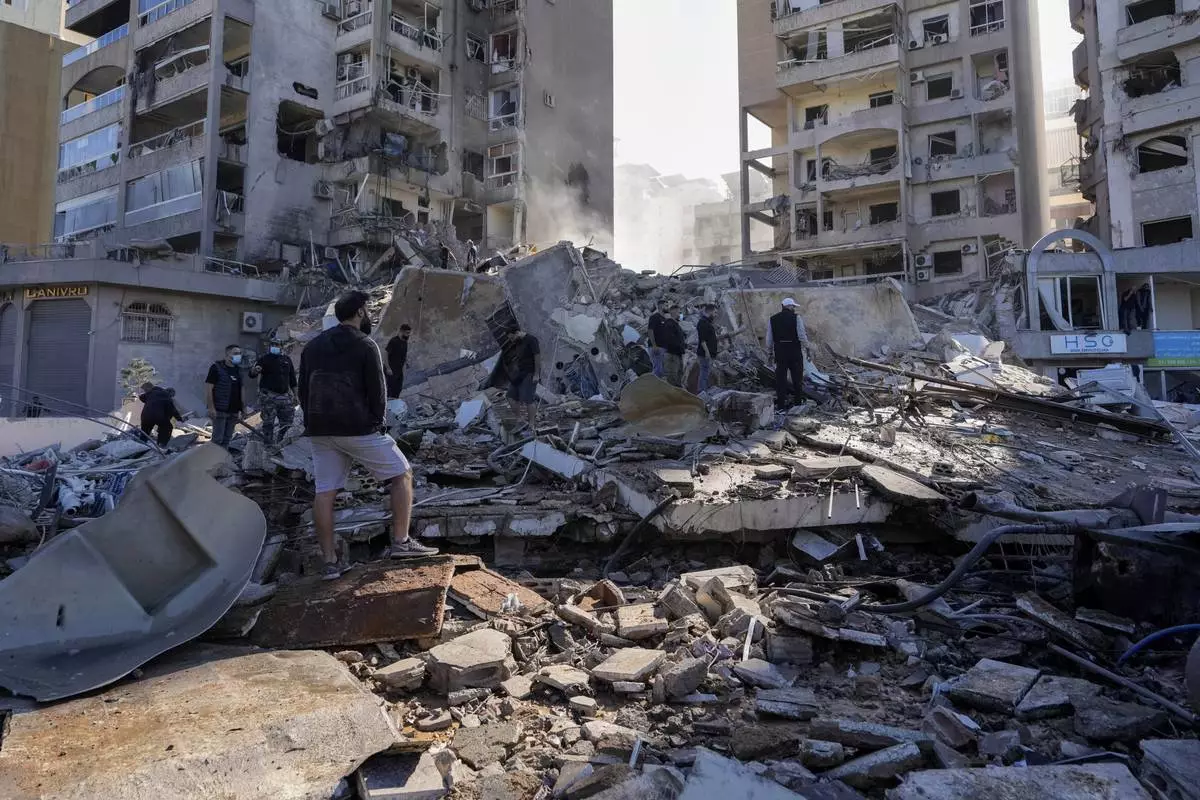
Residents check the site of an Israeli airstrike in Tayouneh, Beirut, Lebanon, Friday, Nov. 15, 2024. (AP Photo/Hassan Ammar)
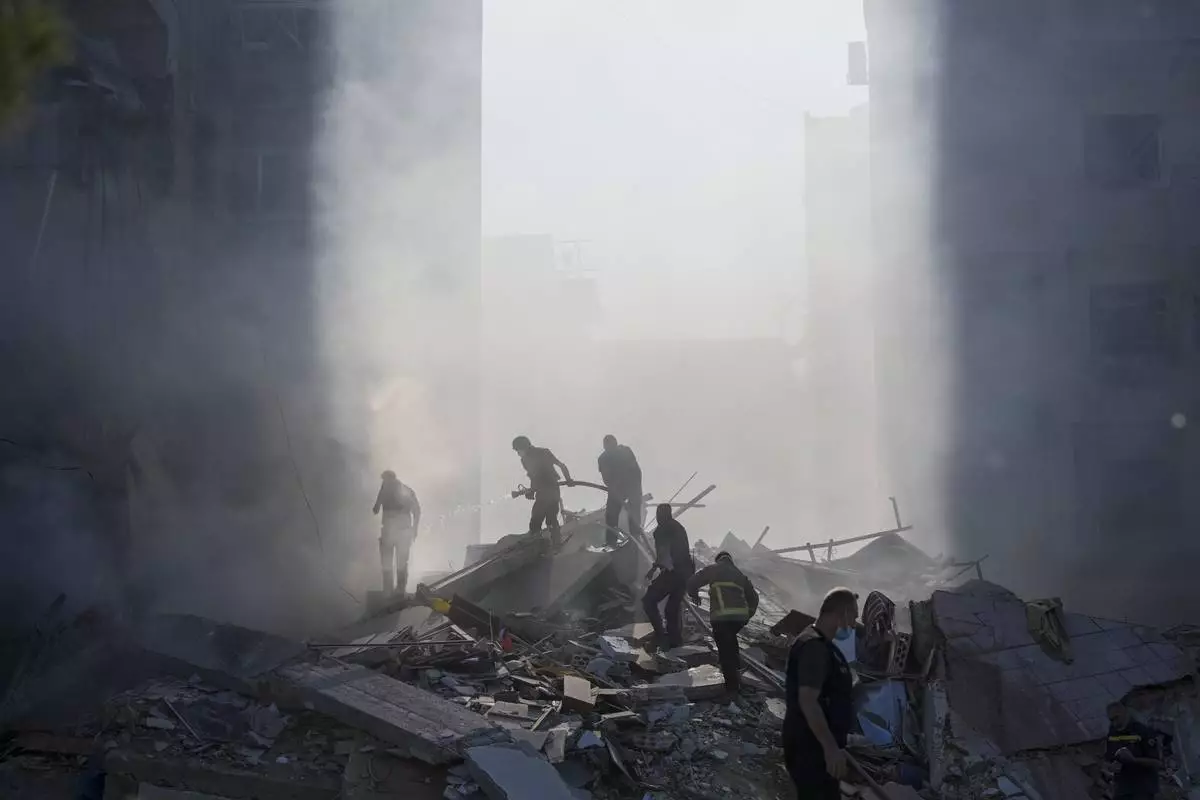
Civil defense workers extinguish a fire as smoke rises from the site of an Israeli airstrike in Tayouneh, Beirut, Lebanon, Friday, Nov. 15, 2024. (AP Photo/Hassan Ammar)
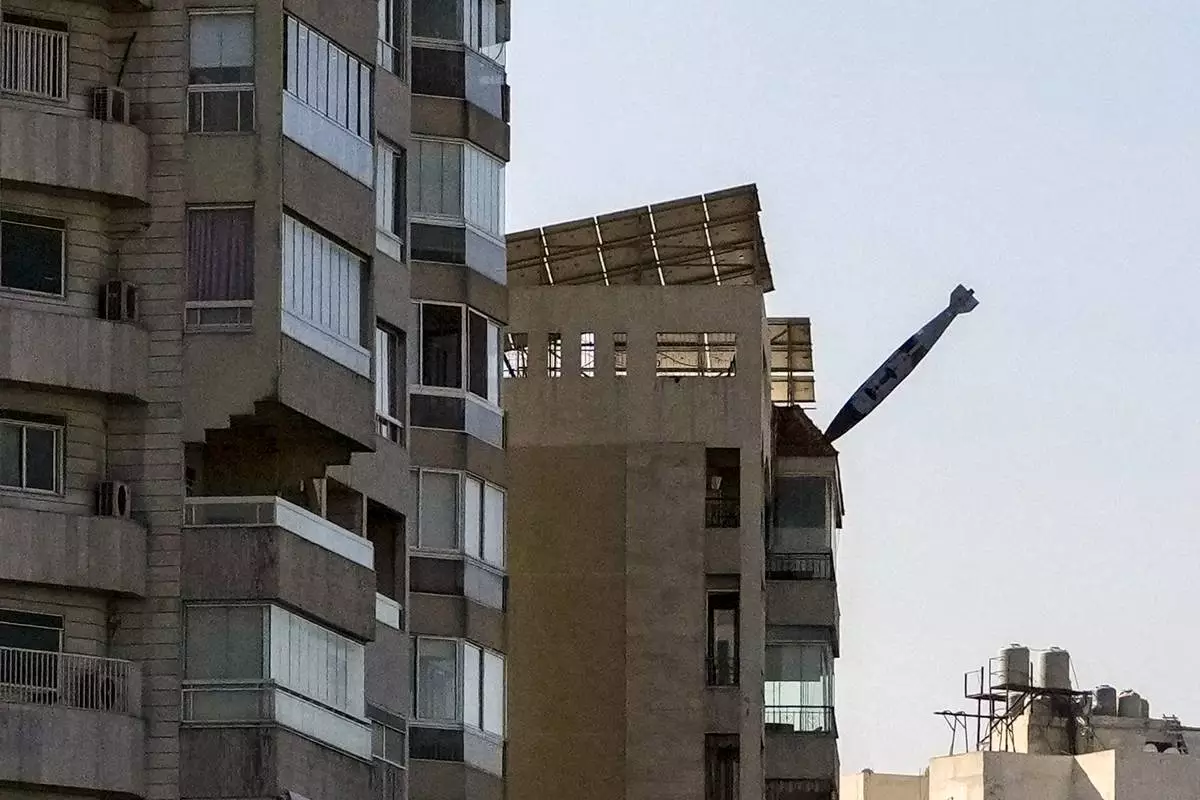
A bomb dropped from an Israeli jet prepares to hit a building in Tayouneh, Beirut, Lebanon, Friday, Nov. 15, 2024. (AP Photo/Hassan Ammar)
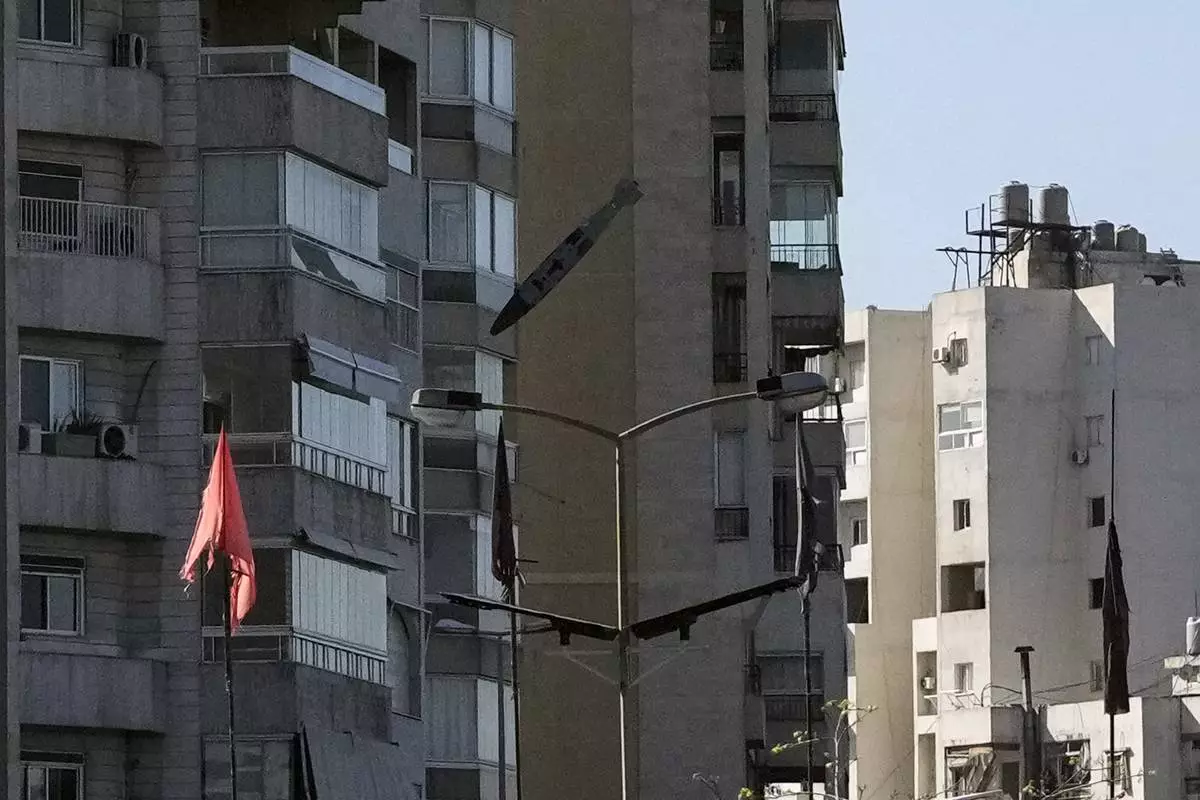
A bomb dropped from an Israeli jet hits a building in Tayouneh, Beirut, Lebanon, Friday, Nov. 15, 2024. (AP Photo/Hassan Ammar)
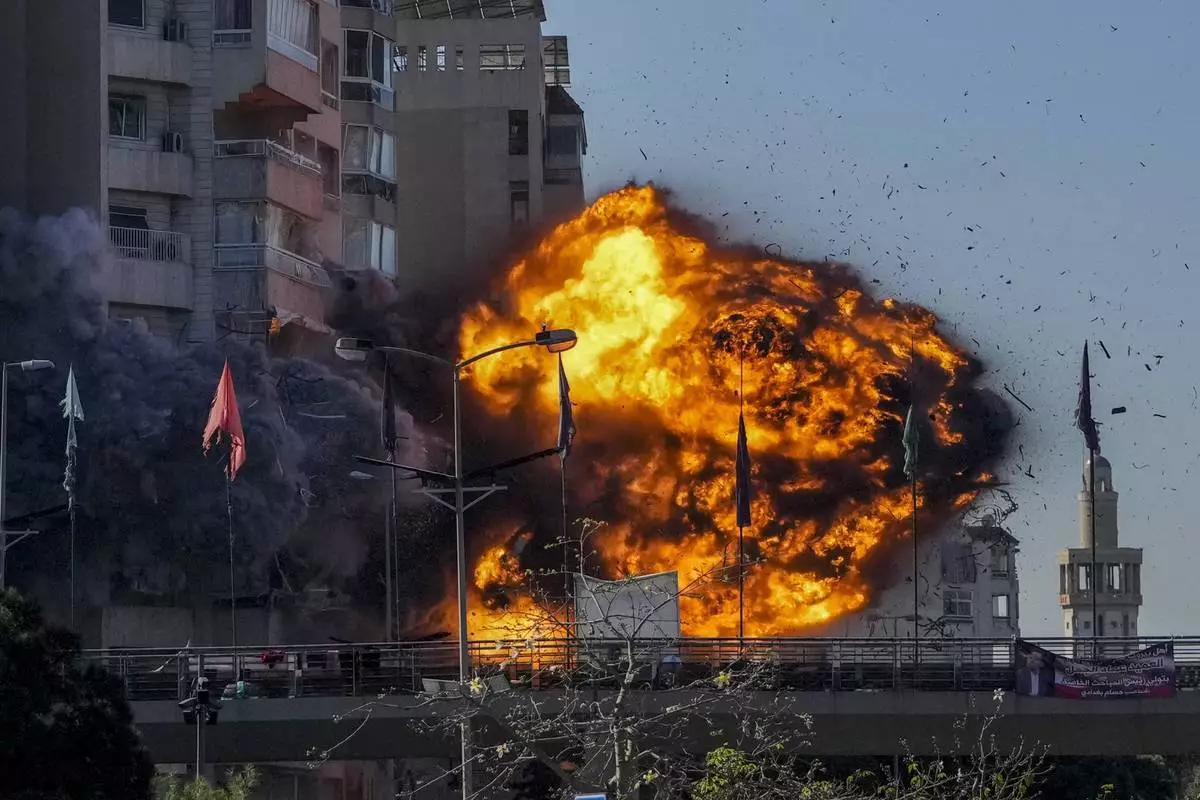
Thick smoke and flames erupt from an Israeli airstrike on Tayouneh, Beirut, Lebanon, Friday, Nov. 15, 2024. (AP Photo/Hassan Ammar)
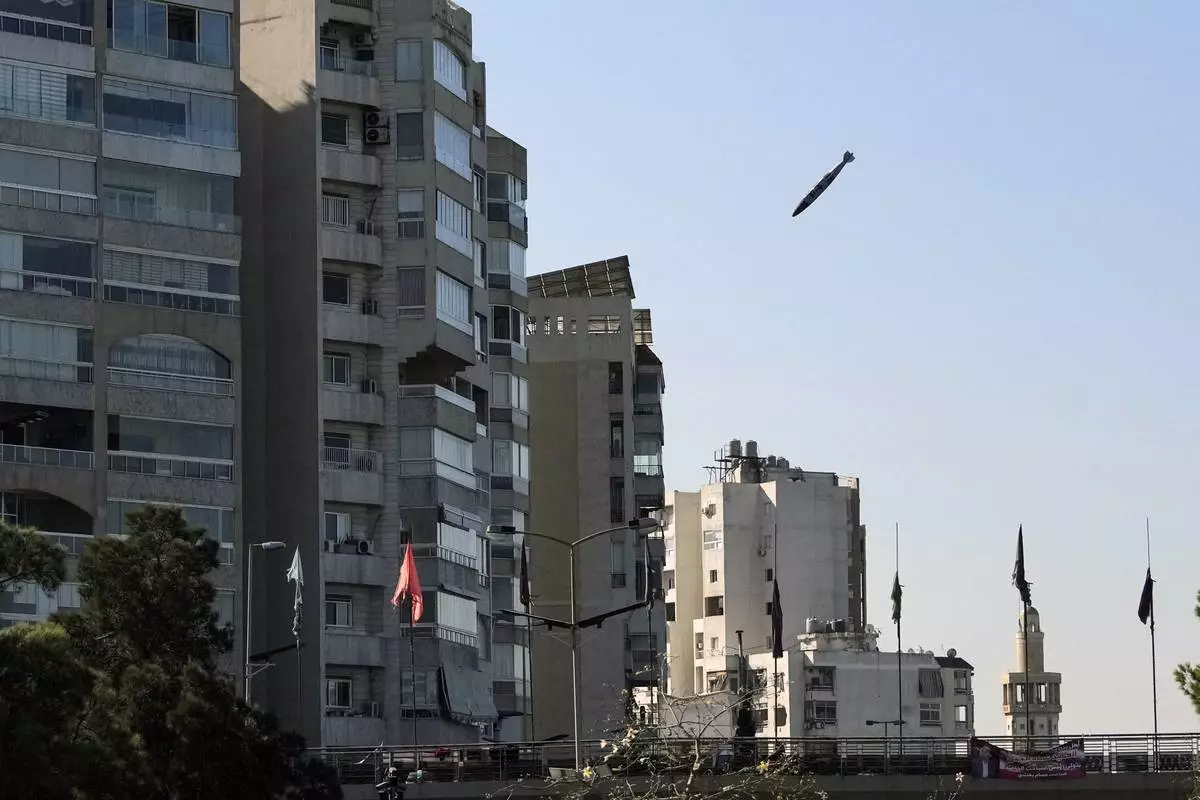
A bomb dropped from an Israeli jet prepares to hit a building in Tayouneh, Beirut, Lebanon, Friday, Nov. 15, 2024. (AP Photo/Hassan Ammar)





